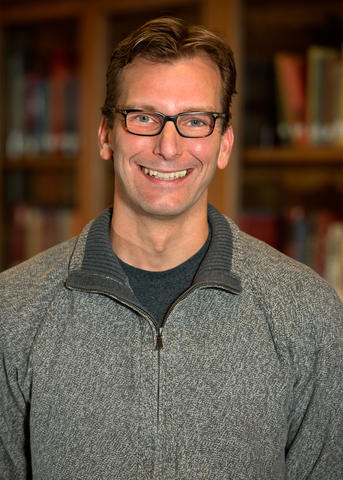In his upcoming work, Professor Marco Yzer aims to overcome the linguistic obstacles of reaching those who may need mental health support.
Over the last decade, the narratives surrounding mental health have changed dramatically. More and more people feel comfortable discussing mental health issues and challenges out in the open. Most importantly, a growing number of Americans feel comfortable seeking professional help for their mental health.
Despite these positive trends, Dr. Marco Yzer believes that there is still work to be done. His research tackles the challenge of reaching those affected by mental health issues in a language and messaging mode that resonates with them.
Messages Lost in Translation
As Yzer began his study of messaging intended for those struggling with depression, he noticed an odd pattern. Some of the messages that aimed to persuade people to seek help for their depression simply didn’t land. Even worse, some messages made people with depression feel even less motivated to seek help.
To understand how this can happen, consider this: if you’re trying to make a point to people in Germany who only speak the German language fluently, it would make sense to write your message in German. That way, your intended audience can comprehend what you are trying to say and connect more readily with your content. If you were to say the exact same thing in English, you would have a significantly lower chance of reaching your German audience. You may even run the risk of offending a few audience members if your message in English happens to sound like a rude one in German. In the end, one language would prove more effective than the other, even though the main point in your messaging remained the same.
In a similar pattern, Yzer noted that some of the messages aimed at those in need of professional mental health assistance, while well intended, had no real shot of sticking with their targets. He was “increasingly concerned that most researchers did not consider the cognitive characteristics of mental illness when they developed and tested messages” intended to guide people to seek help. The language that was being used, while well-intended, could trigger the very thoughts that someone with mental health issues might battle.
As in the case of the German-speaking audience, much of the messaging intended to convince someone to seek treatment for mental health issues can be rendered moot due to their phrasing alone. No matter how strong the presented evidence may be, the reasoning of an argument can become ineffective because the wording and structure of the message doesn’t resonate with people who are afflicted by mental health issues.
This language barrier is one that Yzer is determined to overcome.
Finding the Arguments that Last
From Yzer’s perspective, finding messages that resonate with audiences suffering from depression, anxiety, and other common mental health issues is a very complex but not an impossible task. It does, however, require a new approach.
That’s why Yzer, along with his co-editor Jason Siegel, a professor at Claremont Graduate University, is putting together a one-of-a-kind anthology headed for publication in the latter half of 2024.
Yzer is particularly excited about this project, and not only because he is personally interested in mental health communication. This new book will bridge a number of gaps in mental health research. He believes that “if you want to communicate health, you must understand health science.” However, a number of powerful voices in today’s scientific spaces “never talk to each other.” Many of the leading minds in related fields never work together to connect their findings and discover new solutions, often because there simply are not easy opportunities to meet researchers from other disciplines.
As an active step towards combating this scientific isolation, the upcoming book brings together communication scholars, medical doctors, anthropology experts, psychologists, and more. All of the findings and ideas contributed to this volume surround the topic of mental health messaging. With more than 35 articles and research discussions slated to make it into the final publication, Yzer hopes that people will pull from the volume what they need from the experts that they understand the best.
The practice of advocating for those struggling with mental health is something that Yzer is proud to bring into his daily work life. As a Mental Health Advocate through Boynton Health at the University of Minnesota, he has the unique opportunity to work with students on a personal level. This team of staff and faculty members is charged with finding ways to help support students as they navigate the highs and lows of college. Being a member of such a forward-thinking group is just one more part of Yzer’s goal to make mental health resources understandable and accessible to all.
Dr. Marco Yzer is a Professor at the University of Minnesota Hubbard School of Journalism & Mass Communication. He holds a Ph.D. in Social Psychology from the University of Groningen.
Written by Regan Carter
